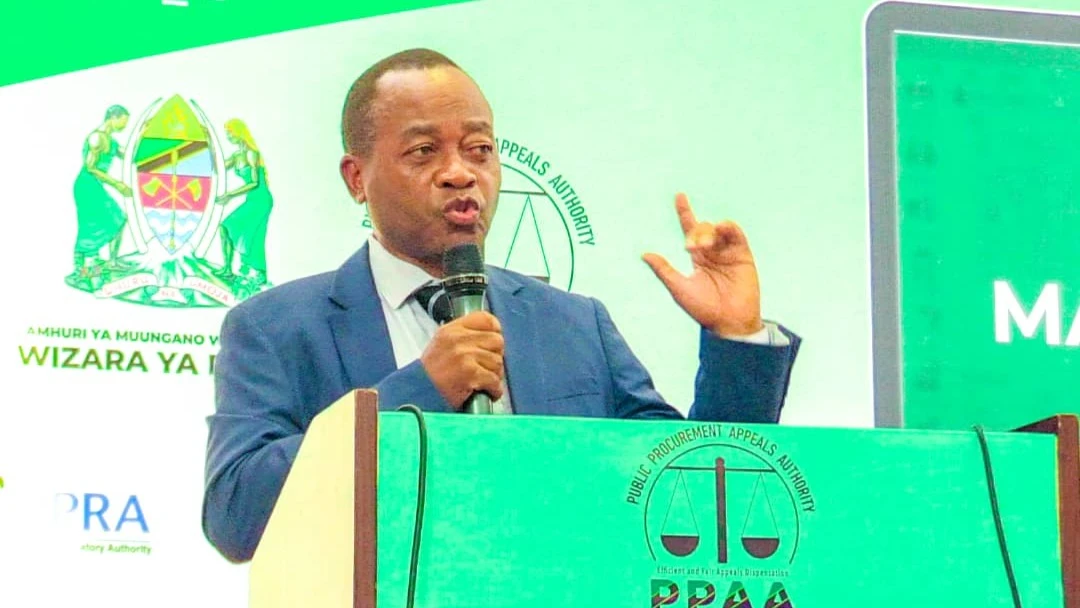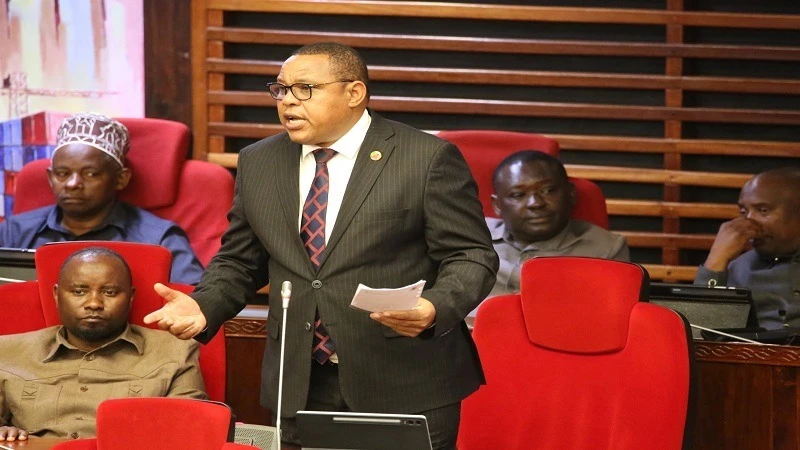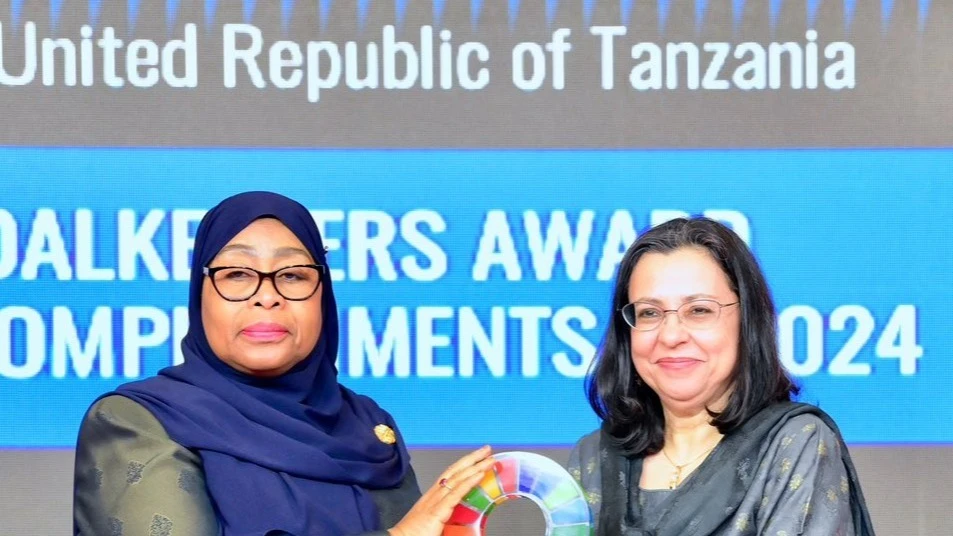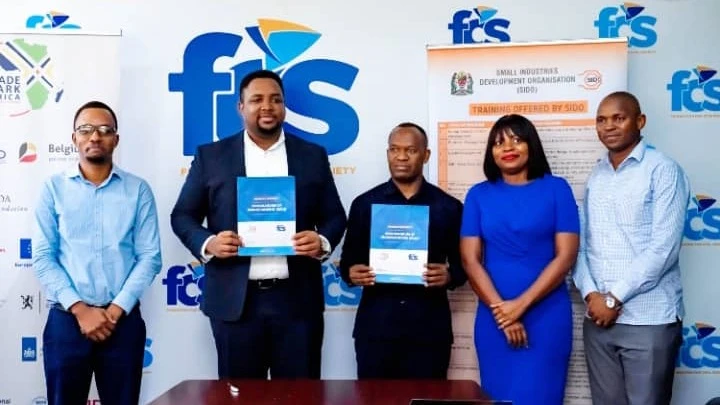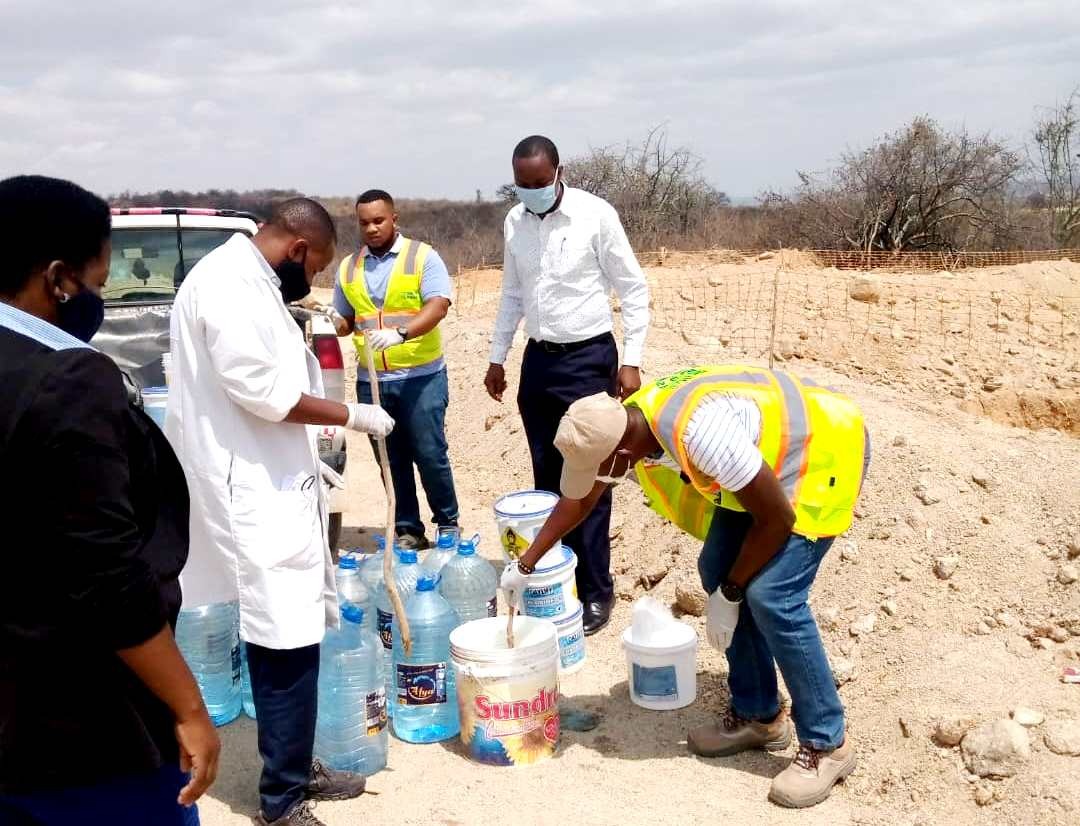Invest in fertiliser value chain, TFRA tells potential investors
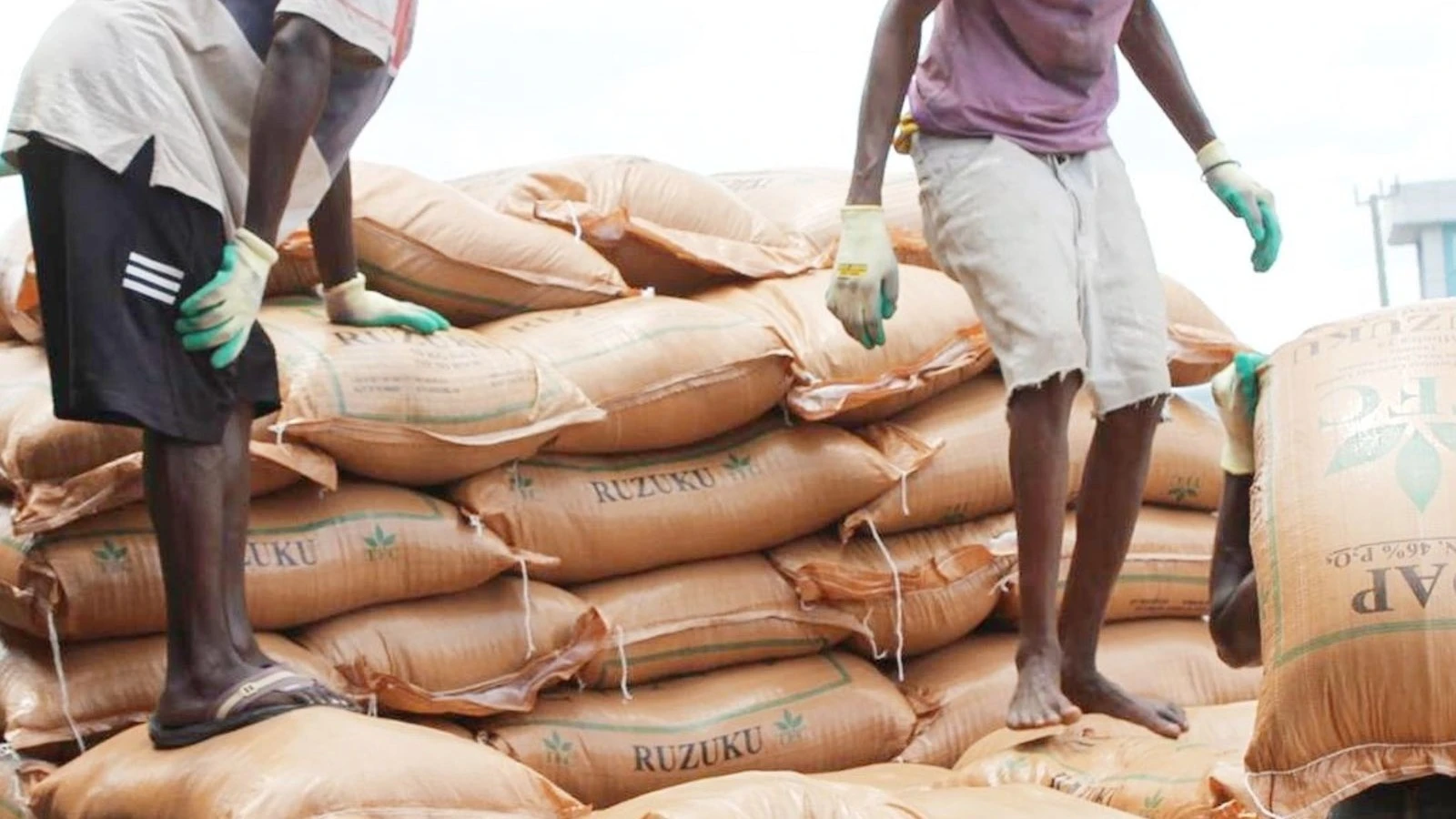
THE Tanzania Fertilizer Regulatory Authority (TFRA) is taking part at this year’s Dar es Salaam International Trade Fair (DITF-2024) to showcase a number of strides made by the authority to boost the fertiliser uptake in the country.
During the DITF 2024, which kicked off on June 28th up to July 13, the authority showcases a number of investment opportunities in the fertiliser value chain—production, transport logistics to storage facilities.
Joel Laurent, TFRA executive director made the call in Dar es Salaam recently when speaking on this year DITF, themed: “Tanzania: Your Best Destination for Trade and Investment,” aimed to open more doors for international communities to access the markets of the Southern African Development Community (SADC) and the East African Community (EAC). Tanzania is a founding member of both regional organizations.
Laurent invited potential investors to make informed decisions to invest in various types of investments—production of fertiliser and its related products.
Currently, he said that the domestic factories cannot suffice the local demand which stands at 848,884 in a year 2023/2024, this calls for more investment in domestic fertiliser and fertiliser supplements manufacturing/ blending.
He stated that investors also can invest in storage and handling facilities, where they can provide facilitation on construction of fertiliser warehouses in strategic locations (along railway lines) through Tanzania Fertilizer Company (TFC) and or Tanzania Railways Corporation (TRC) to reduce domestic distribution costs.
He also urged investors to invest in construction of modern handling facilities at the port of Dar es Salaam to reduce time taken to off-load fertiliser from the vessels causing demurrage cost and reduce spill off.
“Investors can also invest in fertilizer distribution, whereby more distributors are required to make timely availability of fertilizers to various destinations in the country closer to farmers. Opportunities are available for investors to invest in any of the distribution networks,” he noted.
They can also invest on fertiliser packaging factories such as production of fertilizer bags, cans and plastic bottles as well as begging facilities where they can build modern bagging facilities at the port to replace the existing old one to speed-up the bagging process. According to TFRA boss investors can invest in research and development, whereby they can establish why the low fertilizer utilization in Tanzania which is about 19 kg/ha nutrient, much lower than the target set by the African Union in the Abuja declaration of at least 50kg/ha and the global average of 135kg/ha.
“This presents an opportunity for undertaking research to upscale utilization rate and conduct various programmes campaign on public awareness on fertilizer use and other research on fertilizer sub-sectors,” he said.
In this area, investing in testing and analysis services play a crucial role in the fertilizer supply chain by helping farmers and manufacturers make informed decisions about fertilizer applications--soil testing and nutrient analysis which can help optimize fertilizer use and reduce waste. It also presents an opportunity for conducting soil testing programmes to various farming communities to understand the soil health of the particular area.
“We also want investors to invest in new technologies or products related to fertilizers for example, exploring using drones, artificial intelligence and precision agriculture. It improves fertilizer application, reduces waste and provides exposure to the potential benefits of innovation in the fertilizer industry,” he said.
Laurent also welcomed investors to invest in the infrastructure that supports the fertilizer industry, such as transportation networks by joint venturing through Public Private Partnership (PPPs), which can provide a unique opportunity for growth.
He also cited some of the reasons to invest in fertiliser industry in Tanzania as availability of raw materials, whereby Tanzania has a phosphate reserve of about 375,100,000 MT and natural gas reserve estimated at 57 trillion cubic feet which are major raw materials for manufacturing of phosphate and nitrogenous fertiliser.
On Infrastructural development Laurent Said that massive investment is underway all around the country whereby roads are being rehabilitated and new constructed to connect major cities and towns to interior parts of the country. Railway lines are being repaired and upgraded to the standard gauge railway (SGR) and major upgrades and modernization are underway in all the Ports.” All these will make local transportation fast, easy and cheap hence create an opportunity to fertiliser industry in moving both raw materials and fertilizer from the point of entry or manufacturing to the point of destination or consumption,” he said.
On the potential market availability (local and foreign), TFRA DG said: “There is huge local and foreign market due to demand as there is local demand for different types of fertilizer which largely depends on imports Over 90 percent of fertilizer utilized in the country is imported while less than 10 percent is domestically manufactured.”
He also stated that the geographical location of the country presents an opportunity for investment in the fertiliser industry as it is surrounded by landlocked countries that depend on Tanzania for their supply of farm input. Other reasons include membership in Region Integration - the country has access to markets through regional trade unions such as East African Community (EAC), Southern Development Cooperation (SADC) and Africa Continental Free Trade Area (AFCFTA). These factors present a window of opportunity to invest in the fertilizer manufacturing to exploit the untapped potential.
Increasing population has also been attributed as the reason to invest in the country, taking into account that Tanzania's population has been projected to grow by 2.8 percent from about 61 million in 2022 to about 90 million by 2035 (NBS, 2022). This population increase will require more food and hence more fertilizer will be required to increase productivity creating high fertilizer requirements which is an opportunity for fertilizer and fertilizer supplements manufacturing.
TFRA also believes that the governments’ political will as another attribute, whereby the government is strongly insisting on an industrialized economy which calls for investment in different types and scales of industries including fertilizer industries. Hence, the government has made provisions for enabling environments for investors in various sectors including fertilizer industries.
Availability of power generation infrastructures such as Julius Nyerere Hydro Electric Power Plant Mtera, Kidatu and Kihansi dams ensures availability of power at lower cost which will lower the cost of fertilizer.
Laurent also noted: “There is readily available both skilled and unskilled workforce in the entire fertiliser value chain as well as accelerating the global demand for natural and organic farming and crop rotation is expected to drive the need for organic fertiliser.”
TFRA is mandated towards promoting investment in domestic manufacturing of fertilisers and fertiliser supplement (FFS) using domestic available raw materials such as phosphate, limestone, coal and natural gas, to ensure all farmers timely access to fertilizer and fertiliser supplement and minimize dependence on imports and other areas in the fertiliser industry value chain.
Fertiliser industry is one of the areas identified by the government to boost agricultural productivity in Tanzania. The industry is regulated by the Fertilizer Act of 2009 and its regulations of 2011 and their amendments of 2017. Under the Act No.9 0f 2009 Tanzania Fertilizer Regulatory Authorities -TFRA was established in 2012 with the mandate to regulate the quality and trade of fertilizer and fertilizer supplements (FFS) in the entire fertilizer value chain including manufacturing, importation distribution, storage, exportation and utilization.
Top Headlines
© 2025 IPPMEDIA.COM. ALL RIGHTS RESERVED














